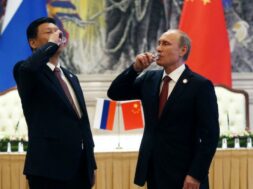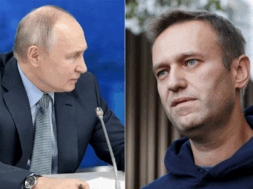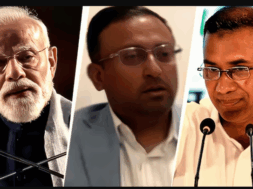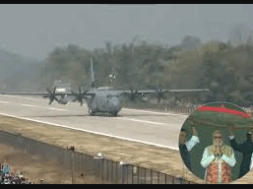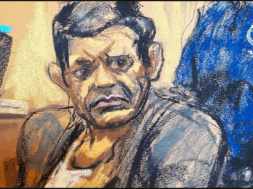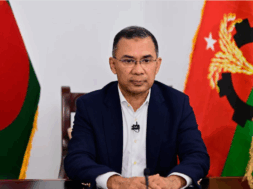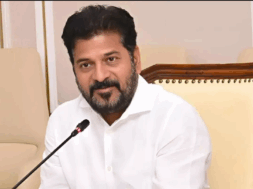
Roving Periscope: Fearing collapse at home, Xi, like Putin, may skip the G-20 Summit
Virendra Pandit
New Delhi: Facing their worst challenges both at home and abroad, China’s President Xi Jinping, just like his Russian counterpart Vladimir Putin, may also skip the Group of 20 (G-20) Summit scheduled for September 9 and 10 in the Indian capital.
Putin is afraid of venturing beyond Russia because of an arrest warrant issued in March by the International Criminal Court (ICC) against him in the Ukraine war crimes case, and also because of another possible, and successful, coup in the Kremlin.
Xi, on the other hand, is worried about a fast-plummeting economy, a possible collapse of the Chinese Communist Party (CCP), a massive coup, and a Soviet Union-type dismemberment of the country.
Despite the uncertainty, India is still preparing for Xi’s last-minute decision to join the Summit next week.
But even with a week to go, Xi has not confirmed his participation. His acolyte and Prime Minister Li Qiang might stand in for him, just like Putin’s Foreign Minister Sergey Lavrov attending the BRICS Summit last week, according to the media reports on Wednesday.
Although he attended the BRICS Summit in Johannesburg, South Africa, Xi skipped the five-nation group’s crucial meeting on financial matters, apparently fearing he might cut a sorry figure in view of the floundering Chinese economy.
That he might skip the G-20 Summit also began to emerge when Beijing republished old controversial maps showing India’s Arunachal Pradesh and Aksai Chin as parts of China’s ‘new standard map.’ As expected, the Dragon’s ‘useful idiots’—India-based pro-China elements in the ‘secular, democratic, liberal’ cabal—lapped these Chinese tactics up to corner the Narendra Modi-led NDA Government. India rejected this dog-eared cartographic diplomacy as old-fashioned.
The fallout of Russia and China’s absence in the G-20 Summit could be immediate. With US President Joe Biden staying put in New Delhi for four days (September 8 to 11), the G-20 Summit is likely to take a full right turn, making India emerge as the voice of the Global South and inch closer to the G-7 instead.
Despite China’s requests, India stuck to its guns—that the border issue could not be delinked with business—and Xi could not meet Prime Minister Narendra Modi in Johannesburg. Even China’s map tactics did not yield any results just a week before the G-20 Summit.
This is another reason for Xi’s reluctance to join the G-20 Summit and face not only PM Modi but also President Biden who has been firing on all cylinders, left, right, and center, against Beijing. Xi had last met Biden in November 2022 during the G-20 Summit in Bali, Indonesia.
But of utmost concern to President Xi is the CCP’s and his own fate at home. Recently, President Putin faced a brief rebellion by the state-sponsored Wagner militia, showing his vulnerabilities and Russia’s hidden volcanoes that may erupt at any time and overthrow his government.
Likewise, Xi is concerned about the potential collapse of the CCP, which, the media reported quoting him in July, has lost 415 million members who renounced their affiliation with the CCP, including its regiments, teams, and other associated organizations.
According to the Greek City Times, these mass resignations came after July 1, 2023. Xi’s speech at a young cadre training class, later published as an article in the CCP’s journal Seeking Truth, made public his worries about the potential collapse of the CCP.
Although the CCP has been a pseudo-Communist cabal in capitalist China, Xi’s appeal to the cadres to adhere to the principles of Marxism and Communism within the context of Chinese characteristics showed his own soft underbelly. He warned the CCP members against mass exodus and that deviating from these beliefs could trigger a Soviet-type disintegration, the media reported.
The CCP itself is reportedly concerned about a similar fate. The Soviet Union’s dissolution in 1991 also started when waves of members quit the Communist Party, as Moscow then, like Beijing now, also suffered worsening internal and external challenges.
Worried that its policies are increasingly facing disapproval and criticism within China and other countries, the CCP adopted more authoritarian measures, including crackdowns on Chinese oligarchs, limitations on people’s freedoms and liberties, censorship of online criticism, and consolidating power in the hands of President Xi who is also the Chairman of the Central Military Commission, and the General Secretary of the CCP.
But these measures have only worsened the situation. China also sits on a volcano.
